20 years after 9/11, the attacks that marked the beginning of the war "on terror"
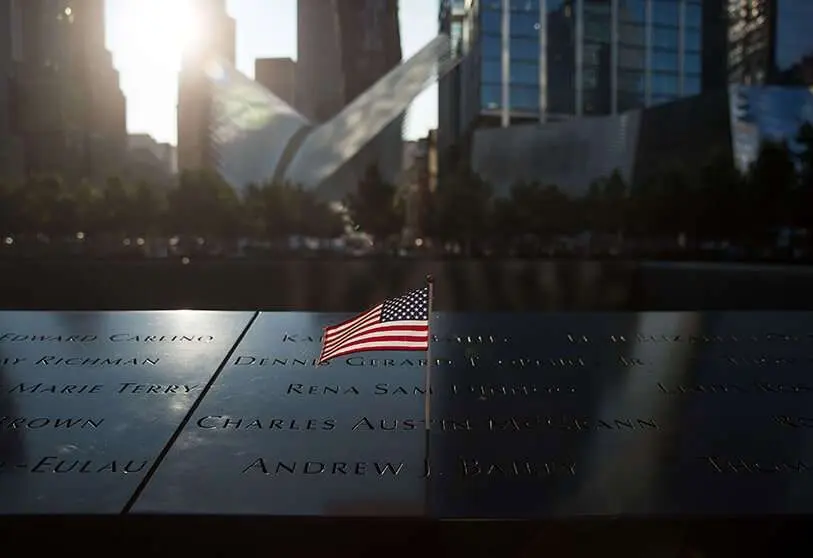
The attacks that changed the course of history
11 September 2001 is a date that has already been marked in history, not only in the United States but also in many other countries because of the international repercussions triggered by the events of that day. Four planes were hijacked by 19 terrorists, most of them of Saudi origin, under the orders of Al-Qaeda, a group led by Osama Bin Laden. Two of the planes hit the Twin Towers in New York, another hit the Pentagon in Washington and the fourth went down in a field in Pennsylvania. Passengers on that flight, after learning of the other attacks, managed to gain access to the cockpit and divert the plane's trajectory, thwarting the terrorists' plans to destroy the Capitol or the White House.
"The attack took place on American soil, but it was an attack on the heart and soul of the civilised world. And the world has come together to wage a new and different war, the first, and hopefully the only, war of the 21st century. A war against all those who seek to export terror, and a war against the governments that support or harbour them". These words were spoken by former President George W. Bush a month after the attacks that left nearly 3,000 dead and 25,000 wounded. These words also started a war in Afghanistan that would last more than 20 years and has finally ended as it began: with the Taliban in power.
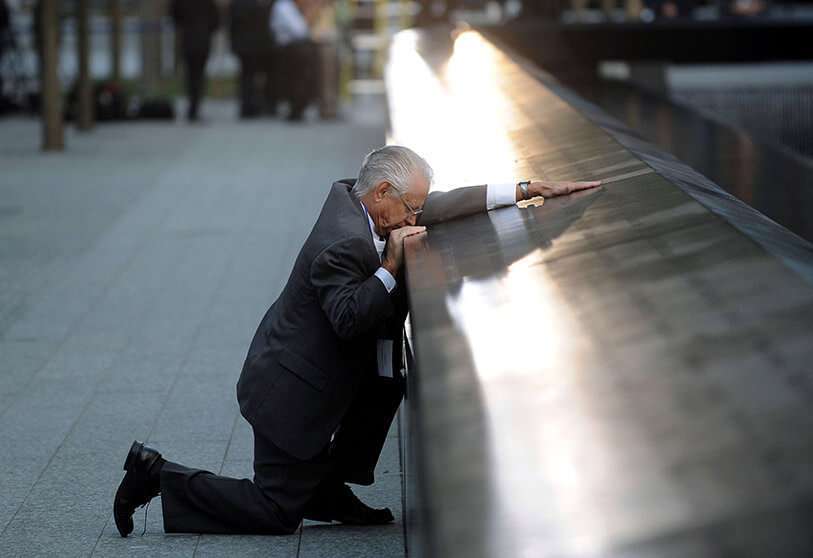
Although none of the terrorists involved in the massacres were of Afghan origin, the Asian country became Washington's target because of its relationship with Al-Qaeda. It was 2001 and the Taliban, an Islamist movement, ruled Afghanistan after violently seizing power in 1996. The Taliban, close to Al-Qaeda, hosted Osama bin Laden, a fact that would condemn not only them but also the rest of the Afghan population. On 7 October, the US began bombing Al-Qaeda and Taliban positions along with British troops under Operation Enduring Freedom. In December, the Battle of Tora Bora took place, one of the most important battles in the early stages of the invasion.
Subsequently, other NATO countries such as France, Germany and Canada joined the war. This international coalition succeeded in overthrowing the Taliban regime, although they would eventually reorganise and reconquer territories. The Northern Alliance, an anti-Taliban resistance organisation, was also key to the Taliban's defeat. This group, composed of warlords such as Ahmad Sha Massoud and Abdul Rashid Dostum, had been fighting the Taliban for years and received US assistance during the NATO intervention.
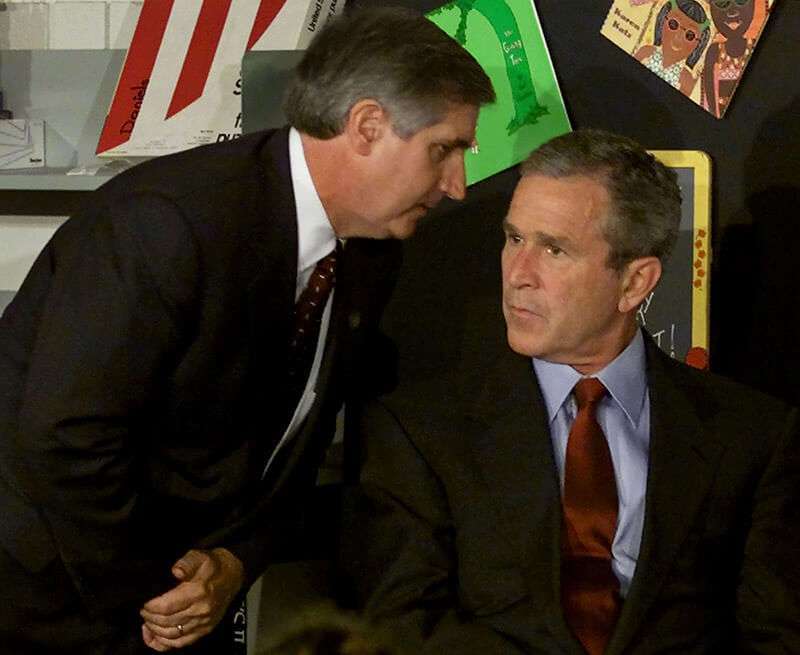
With members of the Northern Alliance at the gates of Kabul, Mullah Omar, the movement's leader, fled the country and Bin Laden moved to Pakistan, where he was captured 10 years later by US Navy Seals under 'Operation Geronimo'.
In 2002, with the Taliban out of power, the "reconstruction" of Afghanistan begins. The US Congress approves $38 billion to be spent on this process. "By helping to build an Afghanistan that is free of evil and a better place to live, we will be following the example of George Marshall," Bush said, alluding to the famous US Marshall Plan that sought European recovery after World War II. On the political front, a transitional government was formed under Hamid Karzai, who won the elections two years later and became the first democratically elected Afghan president.
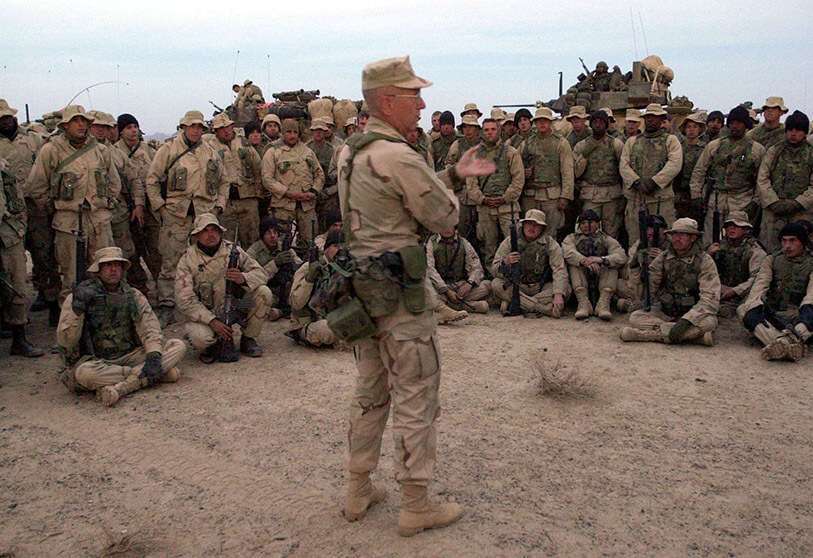
2002 was also the year in which the US administration began transferring people linked to terrorism to Guantánamo Bay prison. This detention centre has always been controversial and criticised by human rights organisations for the conditions in which the prisoners lived. In 2014 the Senate Intelligence Committee confessed that "violent methods of torture" were used in Guantánamo. In 2003, according to Interior Department data, the prison held up to 600 people, most of them allegedly involved with 9/11 or Al Qaeda.
Barack Obama ordered the prison closed in 2008, following the recommendation of the UN Committee against Torture, although there are still prisoners at Guantánamo today. Five defendants accused of involvement in the attacks on the World Trace Center and the Pentagon are still at the US base undergoing lengthy trials. The trial of Khalid Sheikh Mohammed, the mastermind of the terrorist operation, will resume soon after months suspended due to the pandemic. Sheikh Mohammed, like the other four defendants, could face the death penalty.
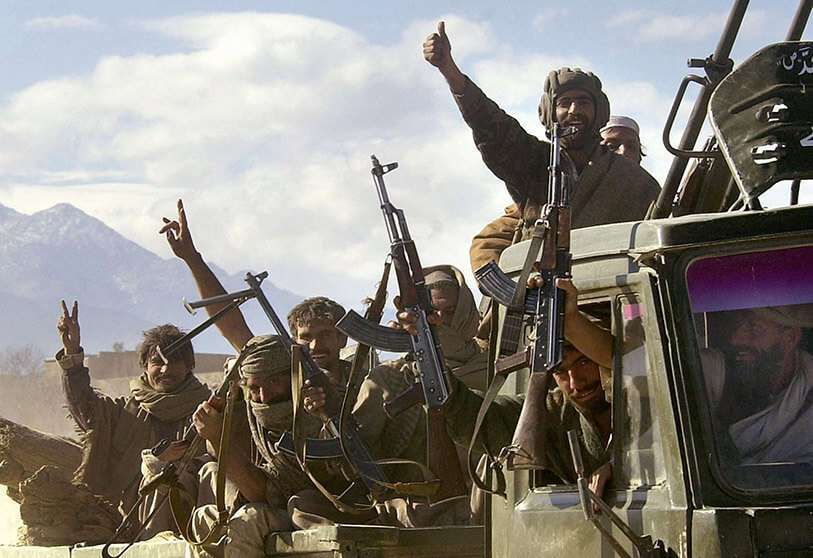
In 2003 stability in Afghanistan seemed possible, so the US decided to announce the end of the "big fight" and focus military efforts on Iraq. Washington accused Saddam Hussein's regime of supporting terrorism and possessing weapons of mass destruction, although these weapons were never found. The bombing of Baghdad began in March, but the war was to drag on for several more years. As a result, the Taliban took advantage of the US focus on Iraq to reorganise, especially in the southern and eastern parts of the country.
In response to this threat, the US is sending more troops and is engaging with the Afghan government to "help organise, train, equip and sustain security forces until Afghanistan develops the capacity to assume that responsibility".
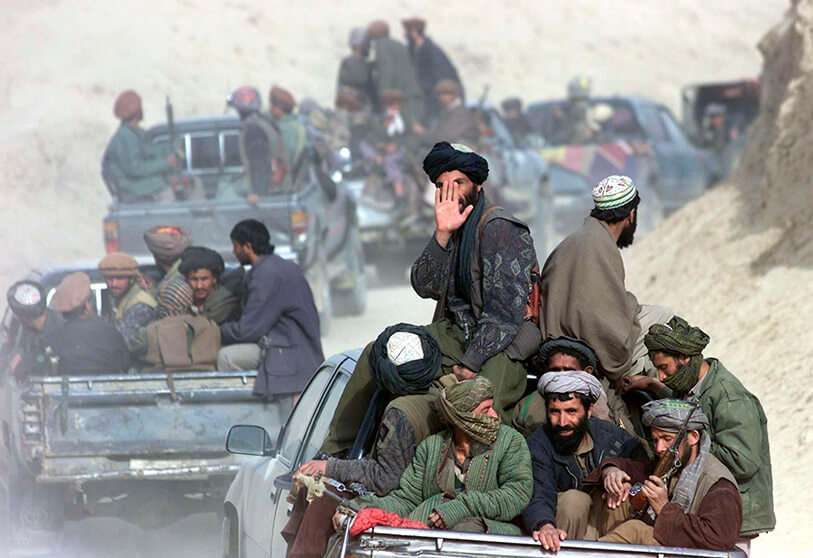
The intervention of other US allies in Afghanistan and Iraq to fight terrorism had its consequences. Madrid, after several threats by Al-Qaeda, suffered a violent ten-bomb attack that left 193 dead and 2,000 injured in 2004. A year later, London became the target of jihadists. Four bombs planted on public transport, as in Spain, killed 56 people and injured 700. These attacks were reminiscent of the tragic day of 11 September 2001 and showed that the war on terror was not yet over. Moreover, al-Qaida's message was clear: all US allies would suffer the consequences of the intervention in Afghanistan on their own soil.
On Afghan territory, coalition troops are also the target of suicide attacks by terrorists, especially in the south of the country, where many took refuge after the fall of the Taliban regime. Stability in Afghanistan is again being called into question by the lack of security forces and the shortage of foreign troops. Nonetheless, NATO forces win a victory in Afghanistan's difficult south in December 2006 after eliminating Mullah Akhtar Mohamed Osmani, a prominent Taliban leader and Bin Laden associate. The Taliban were again dealt a major blow in 2007 with the killing of Mullah Dadullah, commander of the group's military actions in the south. This operation was carried out by US and NATO forces in cooperation with Afghan forces.
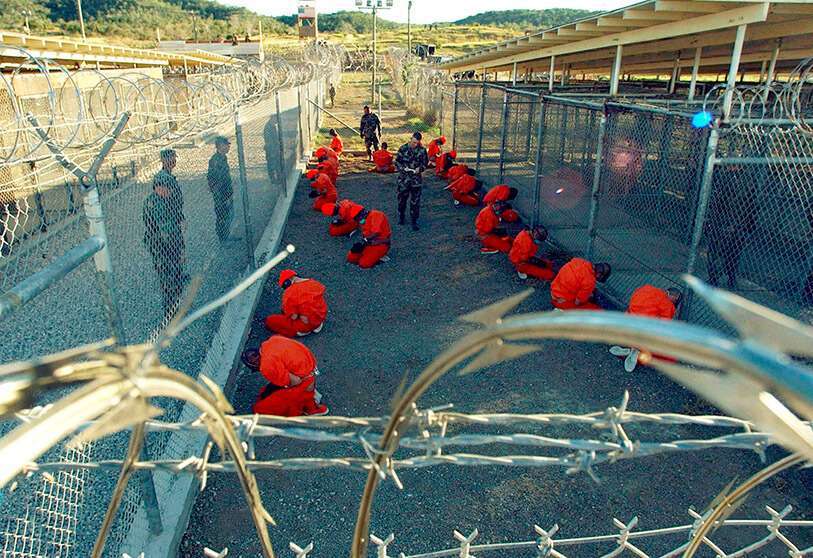
Democrat Barack Obama was sworn in as president in January 2009 with the aim of disassociating himself from the foreign policy of Bush, who left office by sending 4,500 more troops. Obama promised a "new strategy" based on dislodging Al-Qaeda in Afghanistan and Pakistan. He also suspended military tribunals and said he would close Guantánamo. However, like his predecessor, Obama continued to send troops to Afghanistan as part of this "new strategy" against terrorism. A month after coming to the White House, the Obama administration sent 17,000 more troops to Afghanistan, and in December it deployed 30,000 more. Meanwhile, NATO also continued to send more troops.
Another of Obama's pledges was to withdraw troops completely by 2016 through a plan to progressively reduce the number of troops in the country. NATO, for its part, agreed to hand over all responsibilities to Afghan forces at a summit in Lisbon in 2010. Alliance members estimated that this transition would be completed "by the end of 2014". Hamid Karzai, who had been re-elected president, supported the plan, although some members of parliament were concerned about the possible withdrawal of foreign troops.
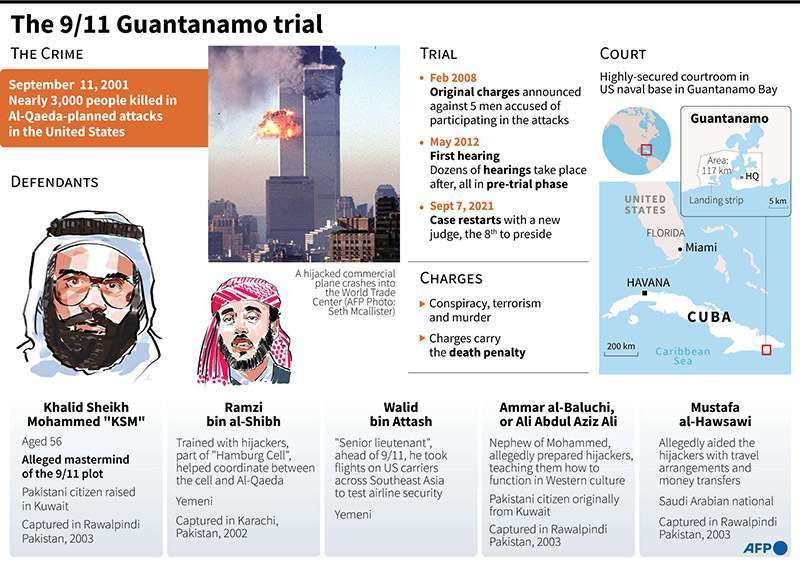
Obama's first year in office coincided with the publication of a UN report warning of rising civilian deaths in air strikes, car bombs and attacks. According to the UN Assistance Mission in Afghanistan, 1,0913 civilians were killed between January and June 2009 alone, compared to 818 in the first half of 2008 and 684 during the same period in 2007. "Both anti-government elements and pro-government forces are responsible for the increase in civilian deaths," the report noted. The report was intended to raise international awareness of the high number of civilian casualties in the conflict. Behind the war on terror, there was a country bleeding to death.
The high point and one of the greatest achievements of Obama's foreign policy came in 2011. On 2 May, 23 US Navy Seals raided the house where Bin Laden, America's greatest enemy, was hiding. The Al-Qaeda leader was residing in a house in the Pakistani city of Abbotabad with other members of the organisation and family members. Many of them, like Bin Laden, were killed by US forces.
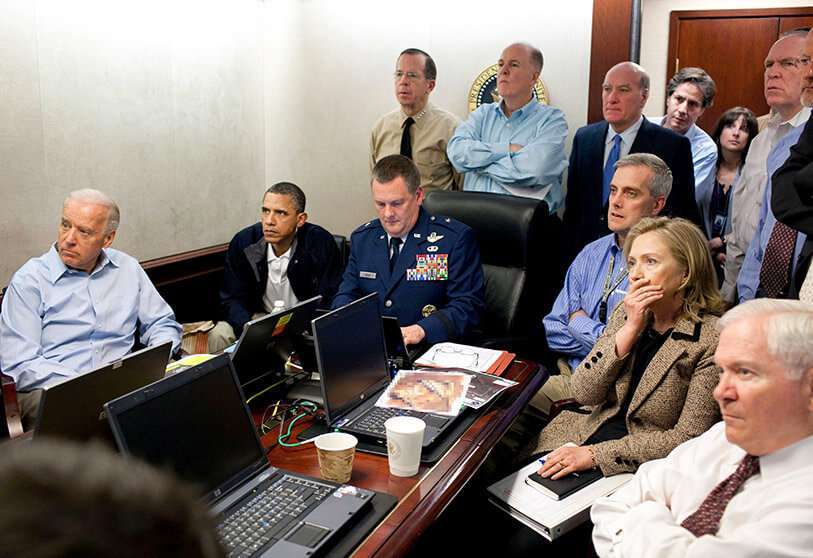
"The United States has killed Osama bin Laden," Obama declared after the Geronimo operation, which lasted approximately 40 minutes. Subsequently, the terrorist's body was dropped into the sea from the aircraft carrier USS Carl Vinson.
After Bin Laden's killing, the US planned to withdraw 33,000 troops over the summer and began negotiations with the Taliban. On the other hand, the death of the Al-Qaeda leader did not mean the end of terrorism in the region.
The Doha Accords
Donald Trump came to the US presidency criticising foreign military operations as "costly and ineffective". However, the former Republican leader claimed that "a precipitous withdrawal would create a vacuum that terrorists would instantly fill".
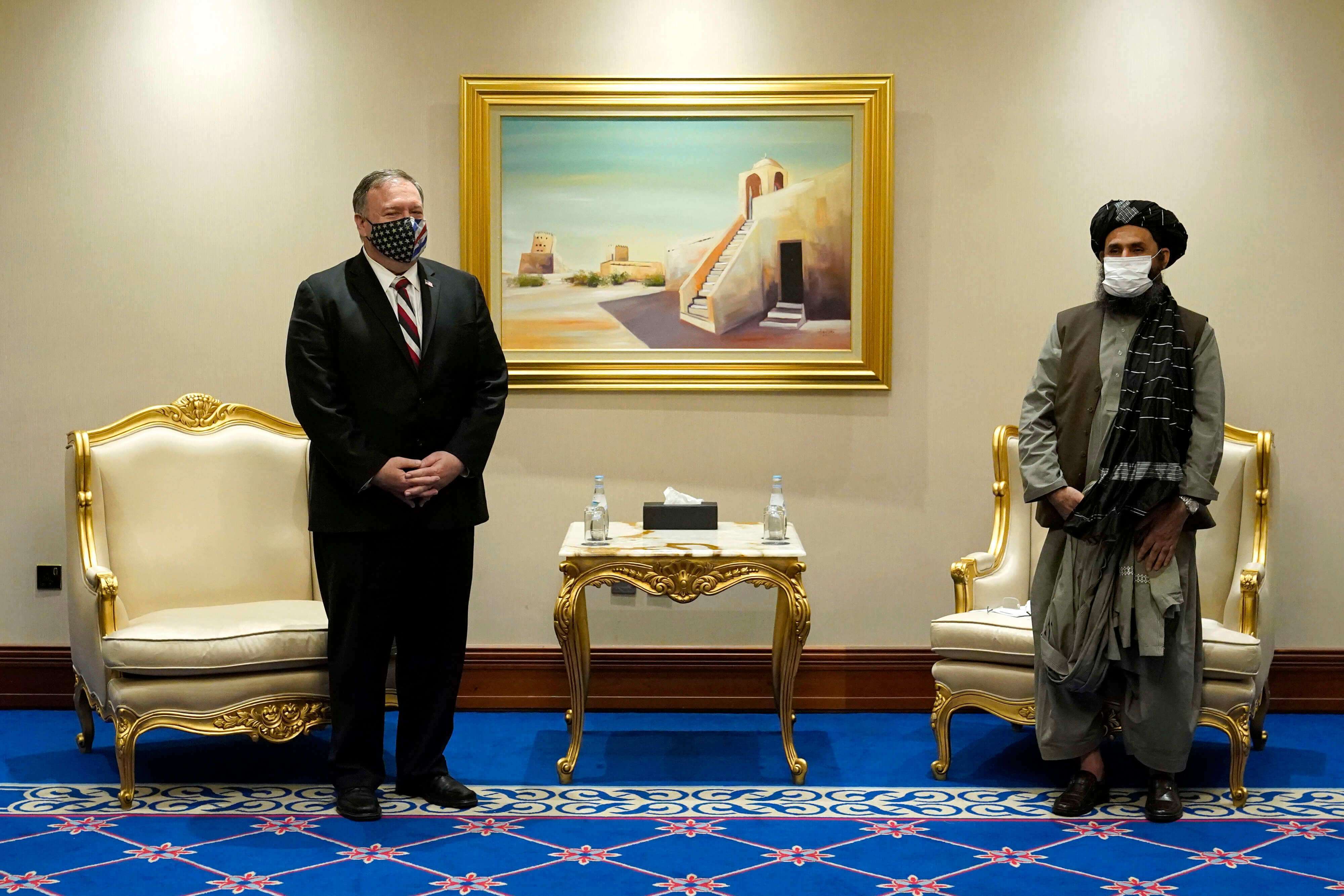
At the time, Kabul was suffering a wave of suicide attacks while the Taliban controlled more than a third of the territory. Faced with the inability of Ashraf Ghani's Afghan government to fight the Taliban, Washington again sent in more troops in 2017.
In 2019, the US and Taliban authorities decide to start a series of negotiations to resolve the situation in Afghanistan in Qatar. These talks culminate in the Doha Agreement, which requires US troops to withdraw from the country by 1 May 2021. In addition, Washington is pressuring the Afghan government to release 5,000 Taliban prisoners. In return, the Taliban were to dissociate themselves from Al-Qaeda and cease attacks against US forces.
The end of Trump's term did not bring a complete withdrawal of troops, so that, as with previous administrations, the Afghan issue was passed on to the next administration without a solution.
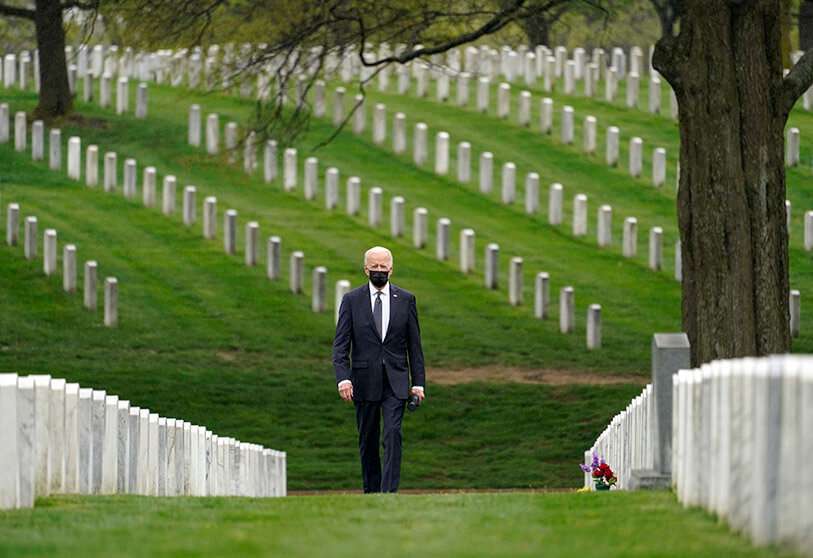
"It is time to end America's longest war," declared current US President Joe Biden in April, three months after being sworn into office. Biden decided to end the intervention in Afghanistan, despite recent warnings from NATO Secretary General Jens Stoltenberg. Stoltenberg warned that withdrawing too soon could allow Afghanistan to become "a haven for terrorists and an opportunity for Daesh to build its caliphate".
Shortly after Biden's announcement, the Taliban launch an offensive against Afghan national forces. The insurgents begin capturing districts and violence breaks out across the country.
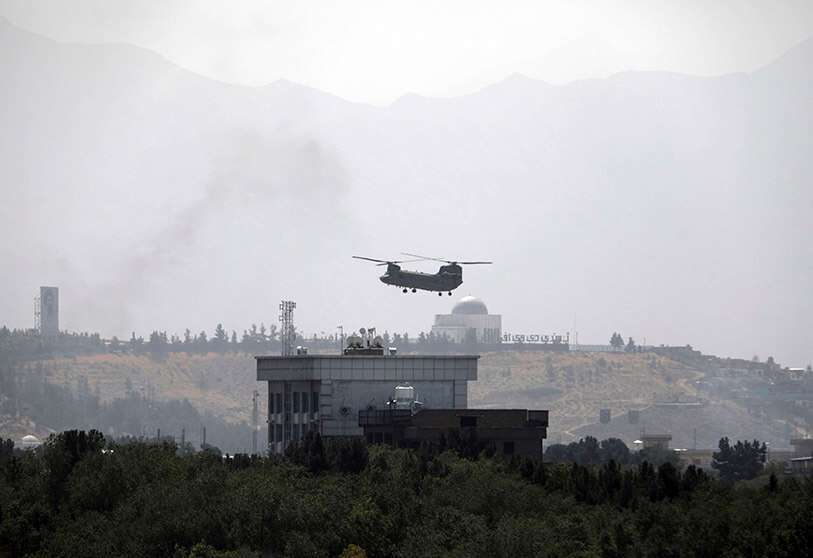
The Taliban carried out a rapid conquest of all Afghan provincial capitals. Herat, Faizabab, Kunduz and Ghazni fell into their hands until they finally reached Kabul on 15 August. The seizure of the capital came as a surprise to everyone, since, according to US intelligence reports, the Afghan government could hold out for a few months.
With the fall of Kabul, the last foreign troops in the country began a hasty withdrawal. Each country also made plans to evacuate their nationals and those Afghans who had collaborated with their troops, such as translators, who were targeted by the Taliban.
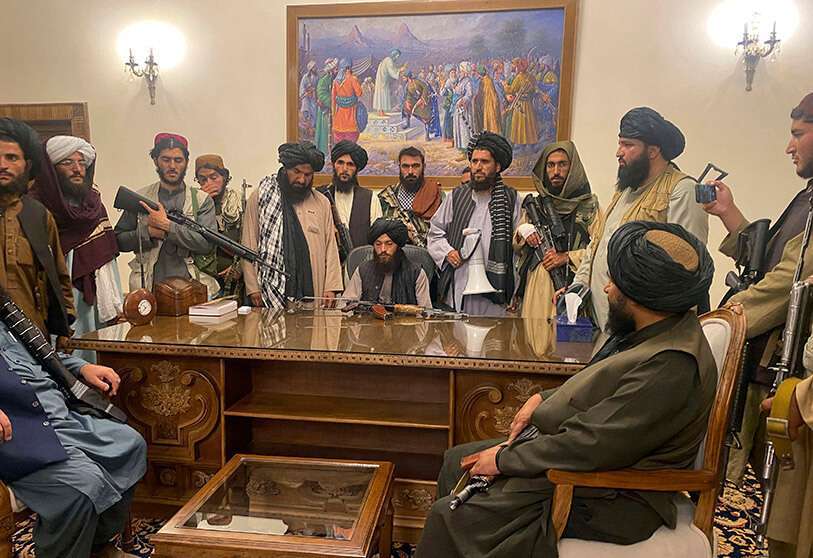
From the time the Taliban arrived at the presidential palace in Kabul and raised the Emirate's white flag until the last US soldiers left the country, the focus was on Hamid Karzai airport. The airfield filled with Afghans desperate to flee the country and the future Taliban regime. Chaos ensued and IS-K (Islamic State of Khorasan) staged several attacks that killed approximately 200 people, including 13 US servicemen, the latest to die in Afghanistan.
Predictably, the US responded to the deaths of its nationals with another attack. One IS-K member was killed in the operation, along with six other civilians, including children.
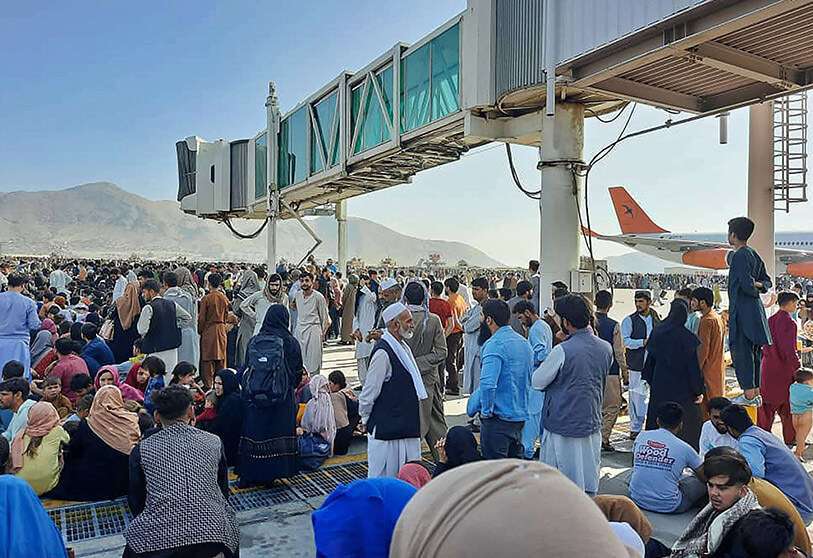
The image of US commander Chris Donahue symbolises the end of the US presence in Afghanistan. The end of two decades of war that have claimed the lives of more than 2,000 US military personnel and almost 50,000 Afghan civilians. In addition to the deaths over the years, the current situation in Afghanistan is critical. Women fear that the new Taliban government will take away the rights they have won in recent years, while a choking resistance is trying to survive in the mountains of Panjshir.
Twenty years after the 9/11 attacks and the subsequent intervention in Afghanistan, Western powers are leaving the country in the hands of the Taliban, just as they did when they arrived in 2001. Some of the members of the new government were even leaders of the former Emirate and Guantánamo detainees. However, the Taliban are now much better armed than they were then and already have the support of some countries. Moreover, their rise to power has given impetus to other fundamentalist groups that have been dormant in recent years and pose a major international threat.
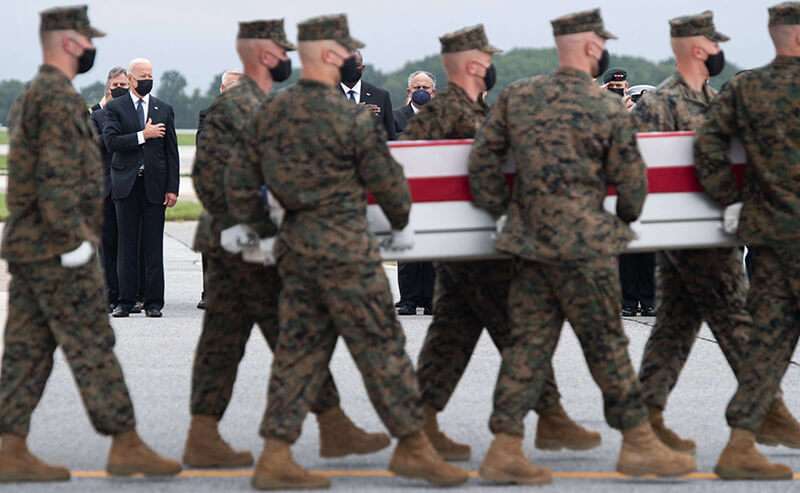
The twentieth anniversary of the attacks will be different from the rest because of recent events, which call into question the military efforts of the past decades and remind us that the wounds are far from healed.








